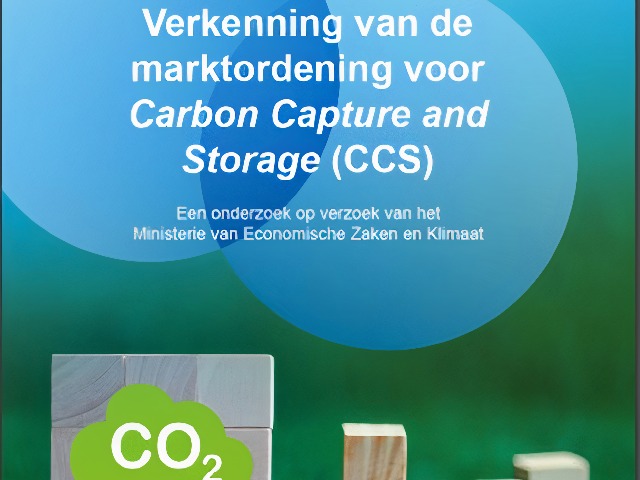CEnBER and UGBS look back on a succesful edition of the Energy and Climate Economics and Business Days
| Datum: | 31 maart 2025 |
The Centre of Energy Business and Economics Research (CEnBER) and the University of Groningen Business School (UGBS) look back on a succesful first edition of the Energy and Climate Economics and Business Days. The event, which took place on 25 and 26 March 2025, brought together more than 80 researchers and professionals to share insights and foster discussion on a broad range of issues relating to global warming, climate policy, climate finance, long-term energy scenarios, electricity markets and household behavior.
CEnBER and UGBS invite you to the 2025 Energy and Climate Economics and Business Days
| Datum: | 01 maart 2025 |
The Centre of Energy Business and Economics Research (CEnBER) of the UG’s Faculty of Economics and Business (FEB) and the University of Groningen Business School (UGBS) are pleased to announce the 2025 Energy and Climate Economics and Business Days on 25 and 26 March 2025. Leading experts, interested practitioners, PhD candidates, alumni of both FEB and UGBS, and researchers at all career levels will present and discuss innovative research on energy transition and climate policy in an economic or business context.
Advisory report for Ministry of Economic Affairs and Climate on design of market for Carbon Capture and Storage
| Datum: | 16 april 2024 |
On request of the Dutch Ministry of Economic Affairs and Climate, Professor of Energy Economics Machiel Mulder wrote an advisory report on the design of the market for Carbon Capture and Storage (CCS). Today the Minister of Economic Affairs and Climate, the Minister of Climate and Energy and the State Secretary of Economic Affairs and Climate sent this report to the Parliament.
Lennard Rekker defended his PhD thesis on Economics of Hydrogen Markets
| Datum: | 10 maart 2024 |
Many policy scenarios suggest an increasing integration of green hydrogen driven by falling electrolyzer cost, higher shares of low cost renewable electricity from wind and solar, and higher carbon prices. However, limited attention has been paid so far to the underlying economic mechanisms and regulation of energy markets. What is the role of these economic aspects in determining the prospects of green hydrogen? This question has been answered by Lennard Rekker in his PhD thesis on the Economics of Hydrogen Markets, which he succesfully defended at the University of Groningen last week.
Publication in Journal of Regulatory Economics on impact of energy transition on yardstick regulation
| Datum: | 04 maart 2024 |
The Journal of Regulatory Economics published our article on the impact of energy transition on distribution network costs and effectiveness of yardstick competition.
Machiel Mulder appointed as member of Scientific Climate Council
| Datum: | 29 maart 2023 |
Machiel Mulder, CEnBER director and Professor of Energy Economics at the University of Groningen, has been appointed as member of the Scientific Climate Council (WKR). This was announced by the Ministry of Economic Affairs and Climate Policy. This independent advisory council will advise the government on climate policy.
Evrim Ursavas appointed as Professor of Energy Logistics
| Datum: | 01 maart 2023 |
The Faculty of Economics and Business (FEB) has appointed Dr. Evrim Ursavas as Professor of Energy Logistics. The chair is situated within the department of Operations.
Daan Hulshof wins SOM Award 2021 for his PhD thesis on incentives for renewable energy
| Datum: | 20 juli 2022 |
The Faculty of Economic and Business (FEB) has awarded the SOM Best PhD Thesis prize 2021 to Daan Hulshof, PhD graduate at the Centre for Energy Economics Research (CEER).
Staff news: Xinyu Li, Sina Ghaemi and Peter Perey will start new jobs
| Datum: | 20 juli 2022 |
Staff news: Xinyu Li, Sina Ghaemi and Peter Perey will start new jobs.
Machiel Mulder’s new book offers insights on the energy transition and policies contributing to achieving it
| Datum: | 20 juli 2022 |
Professor Machiel Mulder of the Centre for Energy Economics Research (CEER) at the University of Groningen offers insights about the energy transition and contributing policies in his new book: “Energietransitie: Eerst snappen, dan doen” (English: “Energy transition: Think first, then act”), published by Eburon Academic Publishers.












